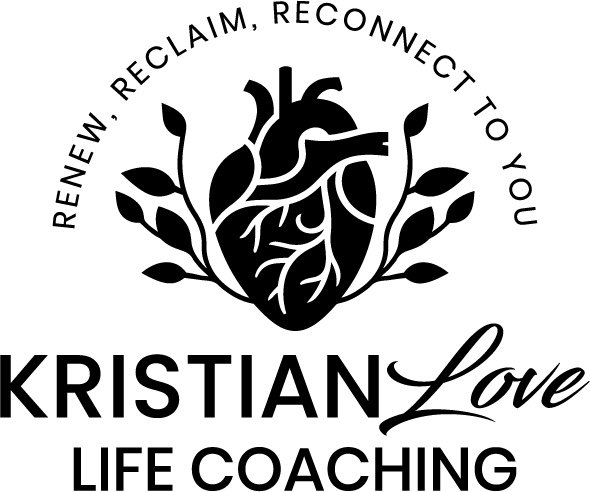Step One: Facing Ego, Releasing Control, Becoming Whole
I’ve done recovery before. I’ve sat in Celebrate Recovery circles and whispered truths that took everything in me to say out loud. I’ve white-knuckled sobriety, gritted my teeth through temptation, and promised myself I’d never go back.
But this time, it’s different.
This time, I’m not just trying to stay sober—I’m trying to stay free.
The 12 Steps—walking them slowly, intentionally, and prayerfully—are bringing me into a deeper healing than I’ve ever known. And it started with Step One:
“We admitted we were powerless—that our lives had become unmanageable.”
I’ve read it before. I’ve even said it before. But this time, I felt it. I saw the ways I still tried to manage everything—my relationships, my emotions, other people’s reactions, my image, my pain. And I saw how it was still rooted in control.
Not because I’m a controlling person—but because I’ve been afraid.
For years, fear and control dictated my life. I thought I was being responsible. I thought I was just “staying ahead.” But underneath, I was scared—scared of being left, misunderstood, abandoned, unseen. And that fear made me tighten my grip on everything.
It also caused me deep anxiety.
The kind of anxiety that doesn’t show up as panic, but as busyness. Overthinking. People-pleasing. Staying “strong” because you’re afraid that if you stop performing, everything will fall apart. But God, in His mercy, started peeling back the layers.
And it hurt.
But it was also holy.
This isn’t just about substances. Yes, addiction and temptation are still real—but this time, recovery is revealing how ego entered my story the moment I believed I had to protect myself. I was a little girl who felt powerless, and ego became my armor. But ego doesn’t heal. It hides. It keeps us stuck in cycles we say we want to escape.
This time, God got sneaky.
I wasn’t actively looking to join a 12 Step group again. In fact, I had a strong bias against AA. My last experience, back in Texas in 2017 after a painful divorce, was uncomfortable and disheartening—just old men in smoke-filled rooms, and I didn’t feel like I belonged. I wasn’t ready. My heart was closed.
But recently, in the middle of a heartbreaking separation from my husband due to his ongoing battle with addiction, I knew I had to set strong boundaries to keep myself sane and sober. The holidays were hard. Christmas was lonely. New Year’s felt empty. But I stayed in church. I stayed honest. And I kept walking through the doors God opened—even when I didn’t know where they’d lead.
One of those doors came through a woman at my church who invited me to a “ladies group.” I had no idea it was a Christian version of the 12 Steps. I just thought it was a support group for women.
That woman? She turned out to be the very answer to a prayer I’ve prayed for years—for a wise, older woman in my life. And not only that… I had even prayed that she would have dogs or puppies. She does. Two adorable ones. It was like God gave me this little wink—“See? I’ve got you.”
She invited me to some other classes and support groups, and eventually, she brought me into AA. And yes, I was hesitant. But I went. And I’m so glad I did.
Now, I’m reading the Big Blue Book. I’m attending meetings. And my heart is wide open—not just to stay sober, but to heal fully. Spiritually. Emotionally. Physically. This book is rich with truth. It’s helping me understand addiction in ways I never have before—ways that are answering questions I’ve held in my heart for years.
And now, through this blog, I’m going to share what I learn as I go. I’m not doing this because I’ve arrived—I’m doing it because I’m finally letting myself become.
That’s what’s different this time.
We are always becoming.
If we allow it, if we keep surrendering, we are always being renewed. And Step One isn't a one-time confession—it’s a rhythm. A posture of honesty. A practice of peace.
What’s different for me now is that I’m healing on every level—spiritually, physically, and emotionally—and this has become the foundation of how I live and how I coach.
Spiritually, I’m learning to trust God with the things I used to manage alone. I lean on scriptures like “My grace is sufficient for you, for My power is made perfect in weakness” (2 Corinthians 12:9) and “Be still and know that I am God” (Psalm 46:10) as anchors when I feel the pull to go back to old patterns.
Physically, I’ve noticed how my nervous system has shifted. I breathe deeper. I feel calmer. I don’t carry tension in my chest every day. That’s not by accident—it’s from practicing stillness, breathwork, movement, and letting go of control.
Emotionally, I’ve been able to stop rescuing people and start honoring my own boundaries. I don’t perform for love anymore. I show up as I am.
This is what integration looks like: not separating your spirit from your body, or your emotions from your faith. It’s about being whole. It’s about living aligned.
That’s what I want for the women I help. That’s what I want for anyone who reads this.
That’s what I’m doing through this blog post. Being open about where I’m at. Sharing the mess, the miracle, and the middle.
Because if I can stay sober, if I can keep growing—so can you.
And maybe if I tell the truth, you’ll feel permission to tell yours.
You’re not alone. And you don’t have to perform your way to healing.
It starts with surrender.
It starts with Step One.
